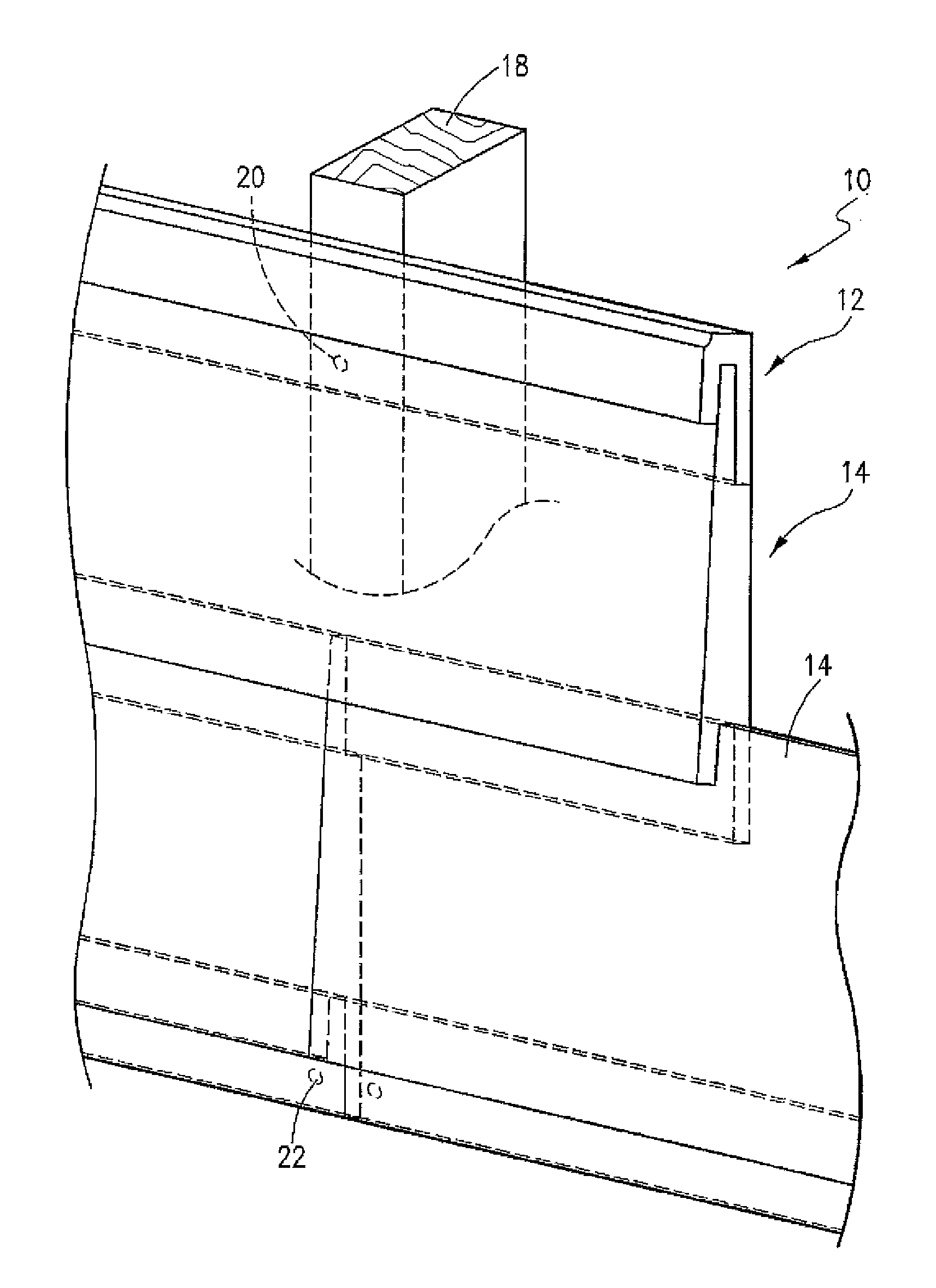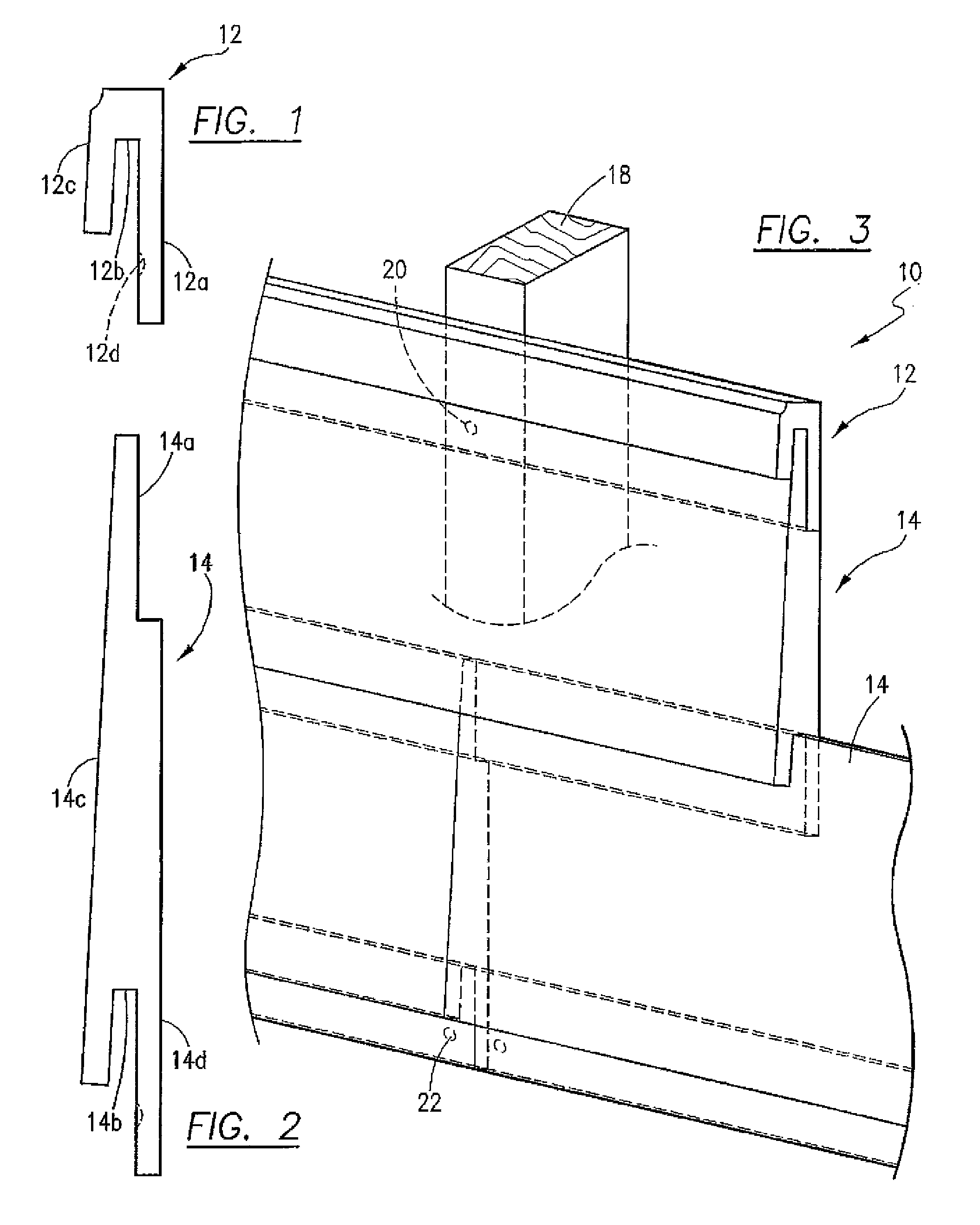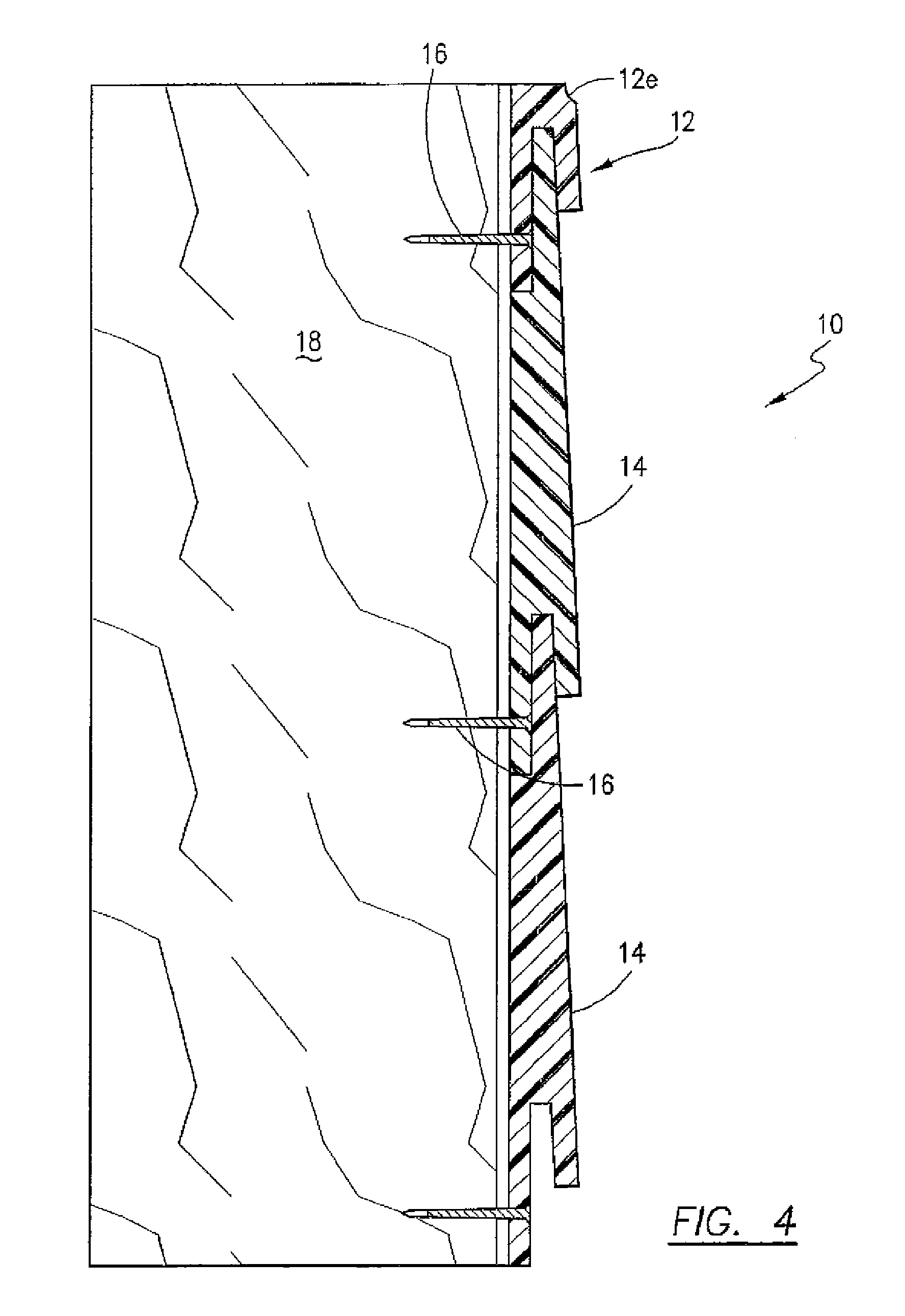Building exterior panels and method
a technology for building exterior panels and facades, applied in roofs, coverings/linings, constructions, etc., can solve problems such as reducing the durability of planks, and achieve the effects of increasing durability, preventing deterioration, and ensuring aesthetics
- Summary
- Abstract
- Description
- Claims
- Application Information
AI Technical Summary
Benefits of technology
Problems solved by technology
Method used
Image
Examples
Embodiment Construction
[0033]Referring now to the drawings and, particularly, FIG. 1, the starting strip 12 is shown in a side elevational view to illustrate the “J-shaped” groove that is inverted 12b formed between the back wall of the starting strip 12a and the front wall 12c. The starting strip 12 also includes a plurality of dimples 12d that are circular recessed portions sized approximately in diameter to equal to the head of a nail or a screw. However, the dimples are not required. This provides a visual indication to a construction worker as to where to insert fasteners such as nails or screws that will be countersunk when the starter strip is mounted to a vertical wall stub 18 as shown in FIG. 3.
[0034]It is further contemplated that each starting strip 12 may additionally have a plurality of shallow vertical grooves located on the flat back wall. These grooves will extend from the top of the flat back wall to the bottom of the flat back wall.
[0035]Referring flow to FIG. 2, the basic siding plank 1...
PUM
 Login to View More
Login to View More Abstract
Description
Claims
Application Information
 Login to View More
Login to View More - R&D
- Intellectual Property
- Life Sciences
- Materials
- Tech Scout
- Unparalleled Data Quality
- Higher Quality Content
- 60% Fewer Hallucinations
Browse by: Latest US Patents, China's latest patents, Technical Efficacy Thesaurus, Application Domain, Technology Topic, Popular Technical Reports.
© 2025 PatSnap. All rights reserved.Legal|Privacy policy|Modern Slavery Act Transparency Statement|Sitemap|About US| Contact US: help@patsnap.com



